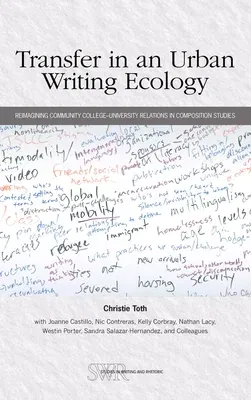This book represents a deep and nuanced treatment of a student
population that makes up an increasingly robust segment of higher
education. As costs rise and dual credit and concurrent enrollment
programs ramp up, understanding how those students navigate the cultural
and bureaucratic transition between areas of the system gives valuable
insight to readers.
- Holly Hassel, North Dakota State University
This book combines historical and mixed-methods research, writing with
student and faculty colleagues, and personal reflection to urge,
document, and enact more transfer-conducive writing ecologies. Examining
the last century of community college-university relations in
composition studies, it asserts that two-year college faculty and
students have long been important but marginalized participants in
disciplinary and professional spaces. That marginalization perpetuates
class- and race-based inequities in educational outcomes. Countering
such inequities requires reimagining disciplinary relations, both
nationally and locally.
Transfer in an Urban Writing Ecology presents findings from research
into transfer student writing experiences at the University of Utah and
narrates the first five years of program development with Salt Lake
Community College faculty and students, discussing the emergent, and
sometimes unexpected, effects of these collaborations. The book offers
the authors' experiences as an extended, imperfect case study of how
reimagining local disciplinary relations can use writing and rhetoric
studies to challenge pervasive academic hierarchies, counter structural
inequities, and expand educational opportunities for students.
Additionally, this book:
- addresses the relative absence of two-year colleges and their faculty
and students in disciplinary
- historiography and studies of writing knowledge transfer;
- articulates disciplinary responsibilities for contributing to what
critical higher education
- researchers call transfer receptive culture;
- offers precedent for faculty at two- and four-year institutions
looking to foster more transferconducive
- writing ecologies; and
- presents a range of student- and faculty-authored perspectives on
principles for partnership that
- have emerged from inter-institutional collaborations in the Salt Lake
Valley.

